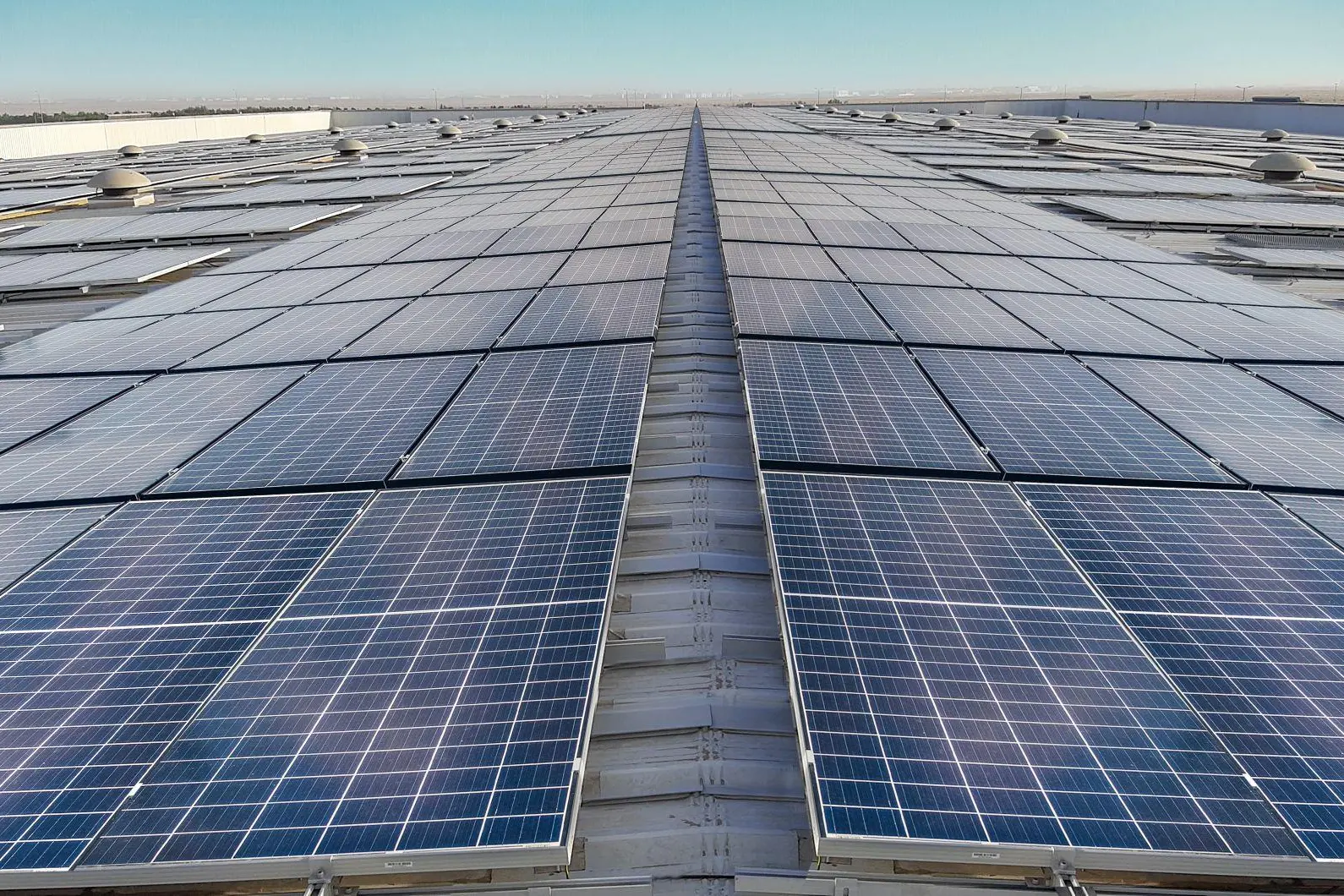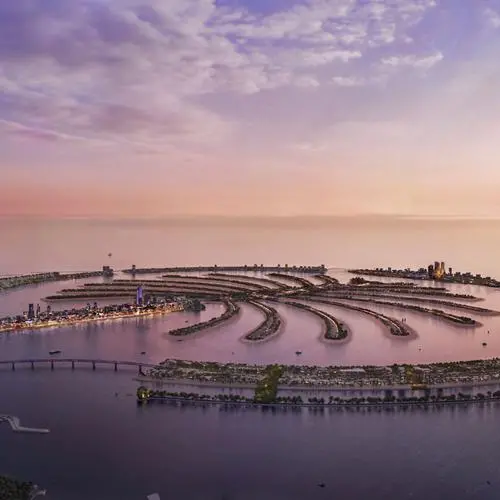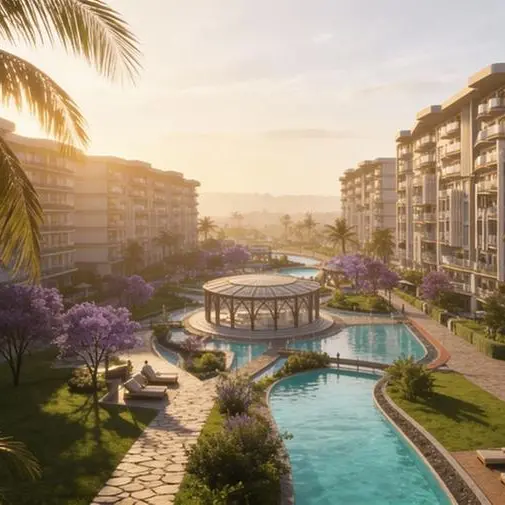PHOTO
Amazon commissioned the company's first on-site renewable energy project in the Middle East and North Africa region (MENA) in the UAE as part of its commitment to be net-zero carbon across all its businesses by 2040 under The Climate Pledge initiative.
Amazon's first solar photovoltaic rooftop in the region is located atop DXB3, its largest fulfilment centre in the UAE in Dubai, the company said in a press statement.
The 5,565-photovoltaic rooftop will meet 60 percent of DXB3’s energy demand, and save an estimated 4.6 million kilowatt-hours of energy annually, the statement said.
It said the project is in line with the maximum permitted capacity in the country, and is connected to the Dubai Electricity and Water Authority's grid through the Shams Dubai initiative.
Video: What is Amazon MENA doing about the climate crisis?
While the statement didn't disclose the capacity of the solar rooftop, DEWA has set a cap of 2.08 megawatts for commercial and industrial rooftop installations in Dubai.
Amazon said in its statement that it is committed to having all its Fulfilment Centres in MENA powered by renewable energy up to the maximum permissible capacity. Following DXB3 in the UAE, two more facilities in Saudi Arabia and Egypt are scheduled to be online by 2022.
Ronaldo Mouchawar, Vice President of Amazon MENA said: "As we embark on the path to a low carbon economy a decade ahead of the Paris Agreement, I call on businesses in MENA to join us as signatories to The Climate Pledge. By agreeing to decarbonise on a faster time horizon, we will play a critical role in stimulating innovation, policies and investment that will help tackle the climate crisis in our communities, our countries and our region.”
The Climate Pledge, co-founded by Amazon, calls on all signatories to meet the goals of the Paris Agreement 10 years early.
The statement noted that the company will work with regulators, industry players and utilities partners to support public policy frameworks that expand the role of renewables across the region. In addition, it will incorporate carbon-friendly design concepts into its new buildings while also strengthening its control systems, data and analytics, to improve energy efficiency across all facilities.
(Writing by SA Kader; Editing by Anoop Menon)
Disclaimer: This article is provided for informational purposes only. The content does not provide tax, legal or investment advice or opinion regarding the suitability, value or profitability of any particular security, portfolio or investment strategy. Read our full disclaimer policy here.
© ZAWYA 2021





















